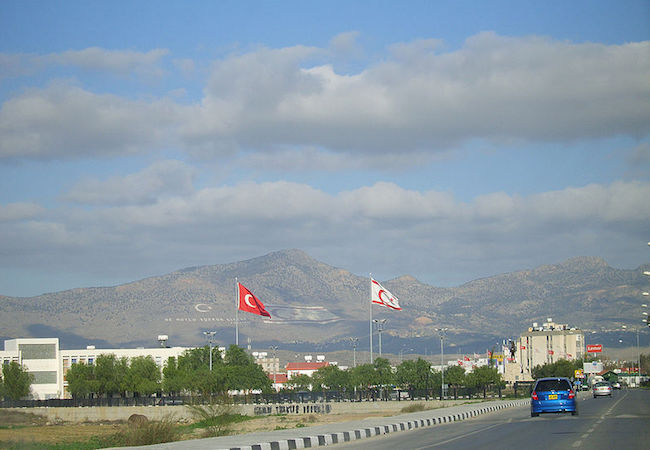
Three days, 27-29 April 2021, of “informal” talks on the future of Cyprus were held in Geneva under the leadership of U.N. Secretary-General Antonio Guterres. There have been no formal negotiations on the issue since 2017. The U.N.-sponsored meeting with representatives of Greek and Turkish Cypriots as well as representatives of Greece, Turkey, and the United Kingdom – the former colonial power – was to assertain if there is enough common ground to start negotiations later this year. Antonio Guterres called on the parties to “be creative in their thinking” – but creativity has been in short supply. However, the geopolitical atmostphere has grown more tense since 2017 with tensions between Turkey and Greece over maritime boundaries and the potential use of natural resources.
Cyprus has been divided between Greek and Turkish Cypriots since 1974, Turkish Cypriots in the north, Greek Cypriots in the south with a U.N. monitored buffer zone separating the two. There are still some 40,000 Turkish troops in the Turkish Cypriot area. The U.N. peacekeeping mission (UNFICYP) has been in Cyprus since 1964 when bad rioting among the Greek and Turkish populations was an indicator that things could get worse and lead to hostilities between Greece and Turkey themselves.
The complex political situation has three States as “guarantor powers” – the United Kingdom which was the colonial master until 1963 and Greece and Turkey which created the tensions in the first place.
The Greek Cypriots hold that Cyprus should be one State and not two, that this one State would be federal in nature, and that this re-united State would be part of the European Union. But “the Devil is in the details;”. The first but crucial “detail” is the geographic frontiers of the Greek and Turkish areas. Given the emotional and complex nature of the situation, geographic divisions with no “natural” frontiers are an issue which can cause real disagreements. Moreover, frontiers can also serve as an excuse if the real disagreement is something else.
The leader of the Turkish Cypriots, Ersin Tatar, proposes a two-state model “living side-by-side in good, neighborly relationships”. Ersin Tatar is closely supported by the Turkish President Recep Tayyip Erdogan, and some see the Turkish proposals as an avenue for Erdogan’s ” Neo-Ottoman” influence in the area.
There is a prior agreement that when there is finally a firm proposal, the proposal will be presented to both Greek and Turkish Cypriot populations in simultaneous referendums. Thus the negotiators must take into consideration the popular attitudes on both sides so that the agreement is mutually acceptable. The hope is that “the time is ripe” for agreement when both Greece and Turkey are preoccupied with other issues in the volatile region and many Cypriots are tired of the status quo.
There are two aspects of the negotiations on which the Association of World Citizens has made proposals given the Association’s long-standing interest in developing appropriate constitutional structures. First, for understandable reasons, the term “federal” is now most often used rather than “con-federal”. In the case of Cyprus “ a con-federal Cyprus” might be the better term, a looser form of union, one in which dealing with issues at the most local level possible would be the constitutional structure.
Borders and frontiers are often thought to be “natural and inviolable” even if they are only borders in the mind. Attitudes toward borders are often conflict-perpetuating. Borders are a reflection of the past rather than of the future.
Today, there is a need for cross-communal cooperation. Thus there may be a possibility for a Cyprus con-federation based not on geographic divisions but on functions, such as economic initiatives, land law, personal status concerning marriage, separation and inheritance. Such a functionally-based con-federation has conflict-solving potential. There is the Ottoman Empire precedent of different legal rules for people living in the same area. However, neo-Ottoman ideology may not be the best approach to stress in the current Cyprus negotiations. Cyprus has one of the oldest UN forces keeping the two communities apart. A con-federal approach may be a spark of hope for advances in bringing them together.




